Lumen Learning
Lumen: Success Skills: Critical Thinking
This activity focuses on critical thinking including a definition, examples, a video of critical thinking in action, logic in critical thinking, questions a critical thinker asks, guidelines for critical thinking, problem-solving, and...
Other
Bbc: H2g2 Circular Reasoning
Excellent definition and discussion of the term "Circular Reasoning," including a couple of very clear examples.
Lumen Learning
Lumen: Rhetorical Reading: Rhetorical Context
This lesson focuses on rhetorical context including defining it, questions to ask to understand it, and how it can be useful to the reader and responder.
Lumen Learning
Lumen: Writing Skills: Logic in Paragraphs
This lesson focuses on logic in paragraphs including logic, structure, rank order, and organization.
Lumen Learning
Lumen: Rhetorical Appeals: Appeals to Logos
This lesson focuses on appeals to logos, or appealing to your audience's logical side including your types of source material, remembering your audience, and being sure to maintain clear lines of reasoning throughout.
Lumen Learning
Lumen: Rhetorical Appeals: The Star Criteria
This lesson focuses on the STAR Criteria for evaluating appeals to logos; it includes evaluating for Sufficiency, Typicality, Accuracy, and Relevance.
Lumen Learning
Lumen: Rhetorical Appeals: Manipulative Appeals to Logos
This instructional activity focuses on how to determine if an appeal to logos is manipulative. It also provides a practice activity.
Lumen Learning
Lumen: Rhetorical Appeals: Kairos and Logos
This lesson focuses on the 4th logical appeal called Kairos, a time when conditions are right for the accomplishment of a crucial action; the opportune and decisive moment.
Lumen Learning
Lumen: Academic Argument: Argumentative Thesis Statements
This lesson focuses on argumentative thesis statements and on recognizing an arguable thesis.
Lumen Learning
Lumen: Academic Argument: Practice: Argumentative Thesis Statements
This practice exercise focuses on recognizing and evaluating argumentative thesis statements.
Lumen Learning
Lumen: Rhetorical Appeals: Appeals to Ethos
This lesson focuses on appeals to Ethos, When you evaluate an appeal to ethos, how successfully a speaker or writer establishes authority or credibility with his or her intended audience. You ask yourself what elements of the essay or...
Lumen Learning
Lumen: Rhetorical Appeals: Establishing Ethos
This lesson focuses on establishing ethos or credibility. You can establish ethos-or credibility-in two basic ways: you can use or build your own credibility on a topic, or you can use credible sources, which, in turn, builds your...
Lumen Learning
Lumen: Putting It Together: Rhetorical Appeals
This lesson brings together the rhetorical appeals including Logos, Pathos, and Ethos and how to identify and apply each. Click the Next link for more information.
Lumen Learning
Lumen: Analysis: Suspend Judgment
This article focuses on the need to suspend judgment and keep an open mind while analyzing a situation or researching a topic.
Lumen Learning
Lumen: Writing Skills: Common Logical Fallacies
This lesson focuses on logical fallacies including defining them, discussing the different types of logical fallacies, and a practice activity.
Lumen Learning
Lumen: Writing Skills: Spotting Logical Fallacies
This lesson focuses on recognizing common logical fallacies and evaluating them in texts. It also provides a practice exercise.
Lumen Learning
Lumen: Writing Skills: Formula for Refutation and Rebuttal
This lesson focuses on the formula for refuting and rebutting counterarguments including accurately representing opposing viewpoints, using a respectful, non-incendiary tone, using reliable information, using qualifying words to aid...
Lumen Learning
Lumen: Writing Skills: Further Your Understanding: Refutation and Rebuttal
This lesson focuses on examples of rebuttal and refutation to improve your understanding.
Lumen Learning
Lumen: Critical Reading: Logic and Structure
This lesson focuses on structure and logic including types and purposes of essays, organizational patterns, argumentative writing, and logic and fallacies.
Other
Wheeling Jesuit University: How to Write a Cause Effect Essay [Pdf]
This writing lab explains the terms "cause" and "effect" and how to write cause-effect essays.
ReadWriteThink
Read Write Think: Identifying and Understanding the Fallacies Used in Advertising
Contains plans for four lessons that teach about the fallacies used in advertising such as bandwagon appeal, hasty generalizations, red herrings, emotional appeals, and more. In addition to objectives and standards, this instructional...
Quizlet
Quizlet: Elements of an Argument Test
Argument essay terms are included on this test over the following words: argument, claim, support, reasons, evidence, and counterargument. Six multiple choice questions are provided on this assessment.
Quizlet
Quizlet: Elements of an Argument Match
Argument terms are included in this review "Match" game. Questions are provided for the following words in this review exercise. for the following words: argument, claim, support, reasons, evidence, and counterargument.
Quizlet
Quizlet: Elements of an Argument Learn
In this activity, students will type the argument term associated with each definition or example. When given a definition or an example, students will practice identifying the following terms: argument, claim, support, reasons,...


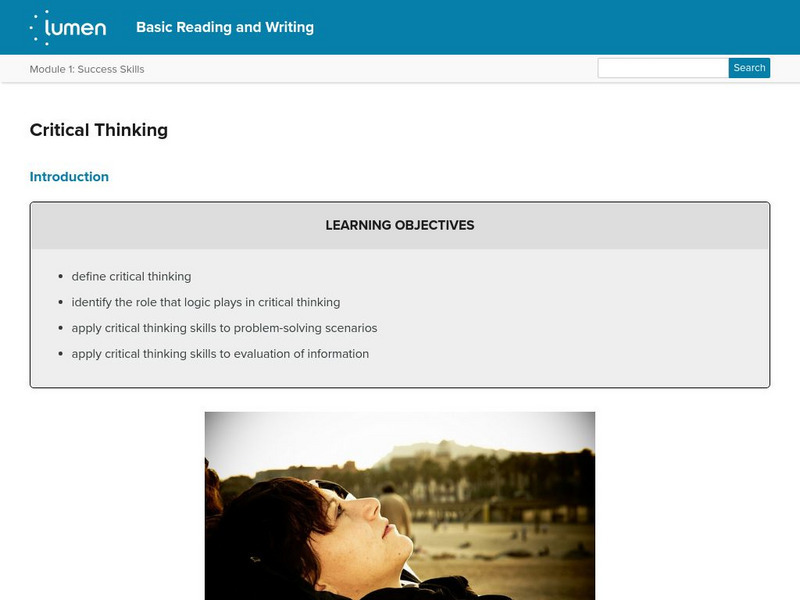

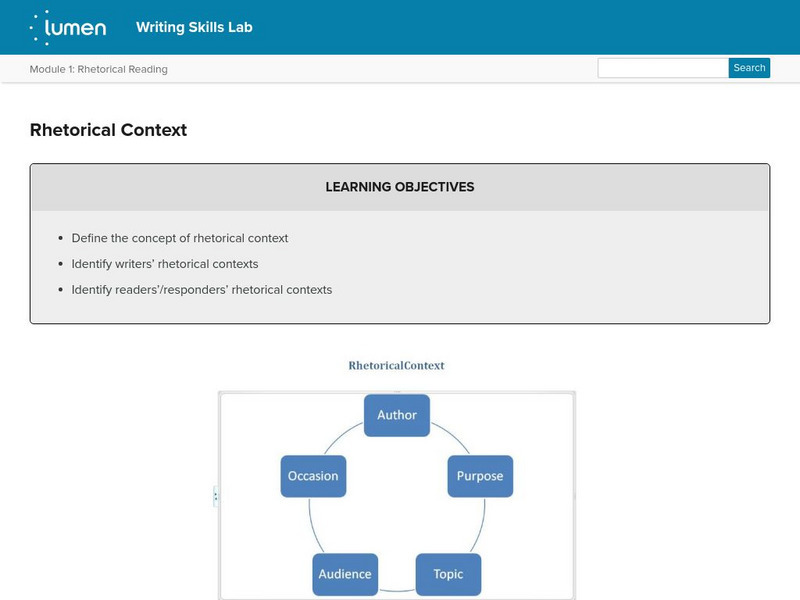
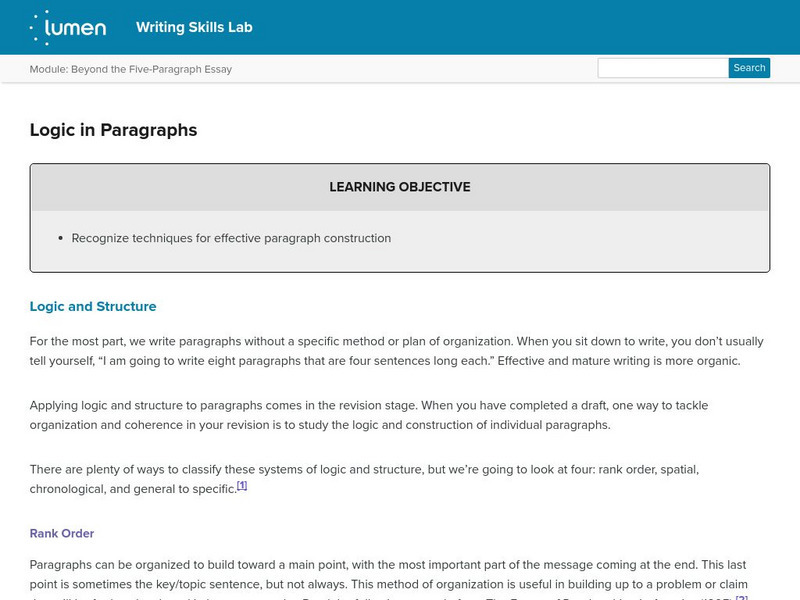
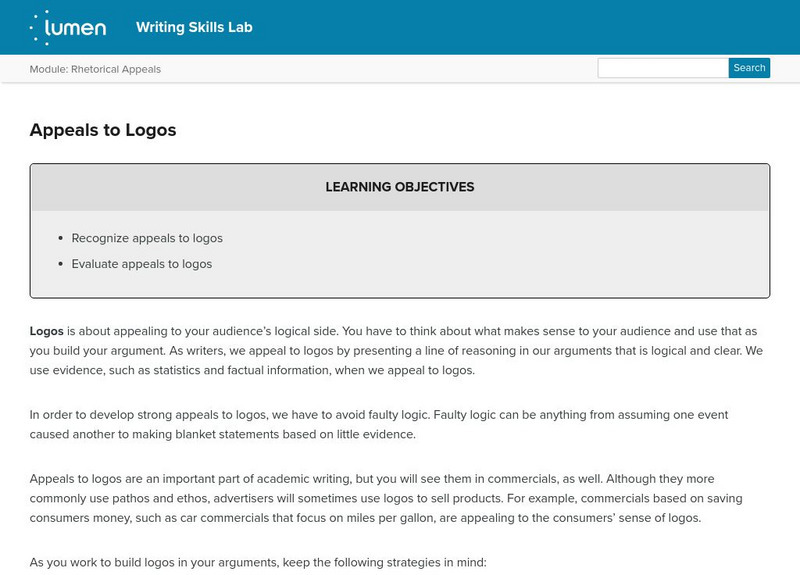



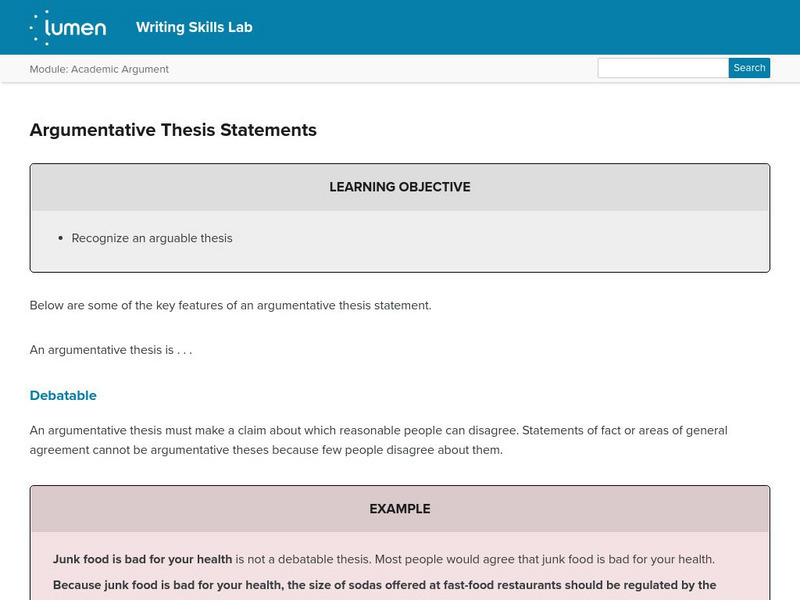

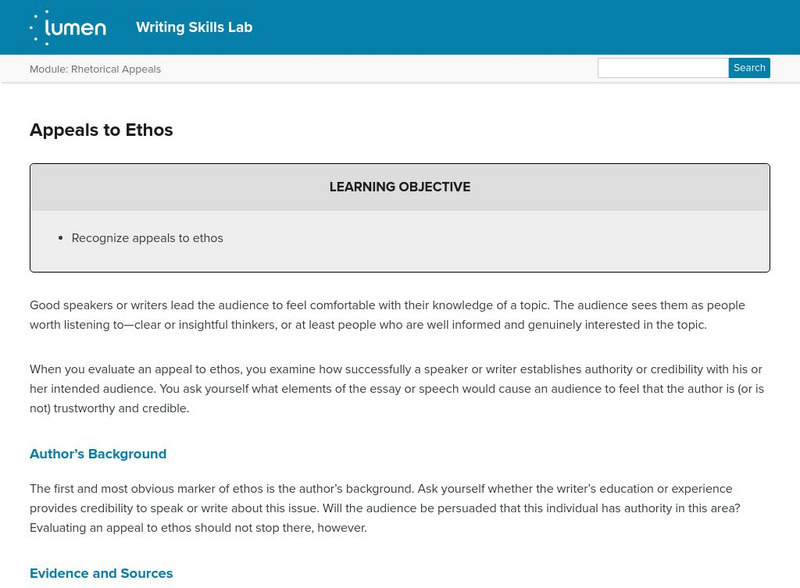

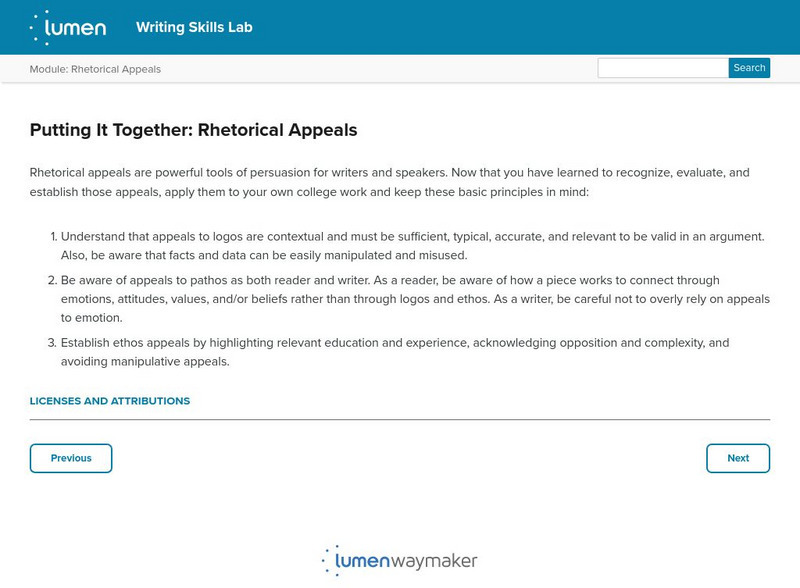


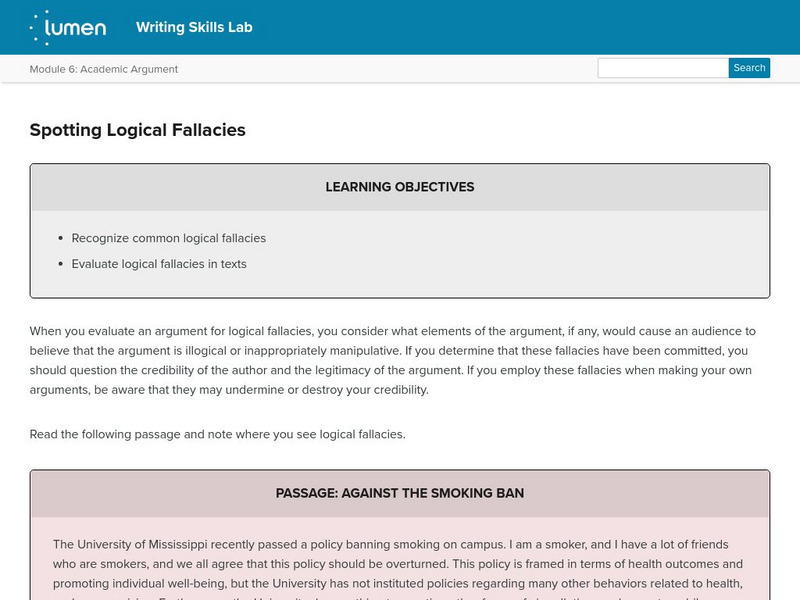

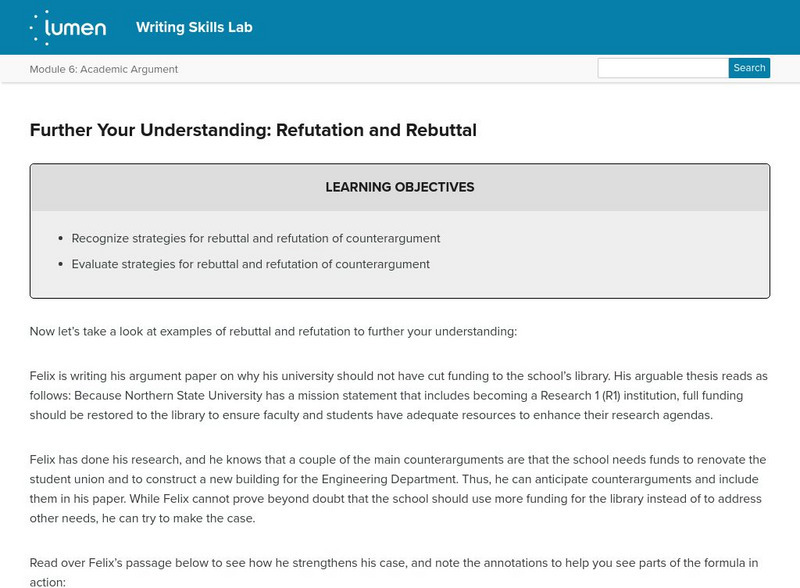

![Wheeling Jesuit University: How to Write a Cause Effect Essay [Pdf] Handout Wheeling Jesuit University: How to Write a Cause Effect Essay [Pdf] Handout](http://content.lessonplanet.com/resources/thumbnails/411265/large/bwluav9tywdpy2symdiwmduymc0xmdmwnc0xztdwmnvvlmpwzw.jpg?1589993216)



